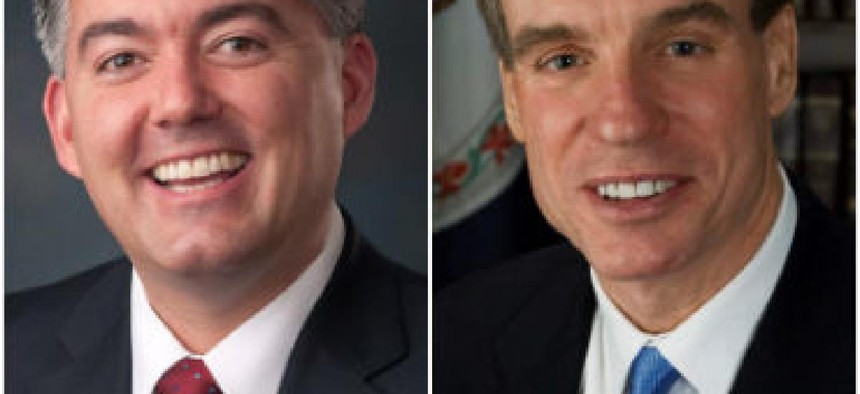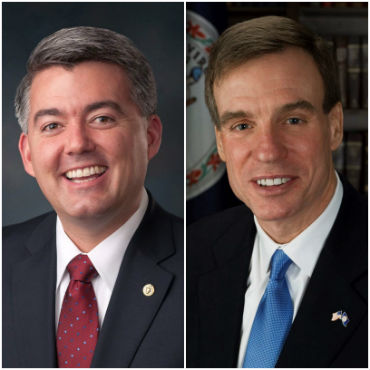Gardner, Warner launch Senate Cybersecurity Caucus

The founders of the Senate Cybersecurity Caucus seek to educate lawmakers on one of the most bedeviling policy challenges of the day.

Sen. Cory Gardner (R-Colo.) and Sen. Mark Warner (D-Va.) joined forces to launch a bipartisan cyber group on Capitol Hill.
Sens. Mark Warner (D-Va.) and Cory Gardner (R-Colo.) have established the Senate Cybersecurity Caucus as a go-to forum for a policy challenge that they say transcends Senate committee assignments.
The caucus will educate lawmakers by introducing them to cybersecurity experts, and provide a means of studying cyberspace's effects on national security and the economy, Warner's office announced.
The "attack surface is rapidly expanding, and the cyber threat is a systemic one," Warner said in a statement.
Gardner described the caucus as a chance for the U.S. government to develop a cybersecurity strategy that many lawmakers have complained is sorely lacking.
"We need a grand strategy to combat positively identified bad actors, and that requires a broad policy response that is adaptable to technological developments and the ever-changing cyber field," the Colorado Republican said in a statement.
Warner and Gardner have teamed up on IT security issues before. They were among a group of bicameral lawmakers who introduced legislation to set up a commission to study digital security issues such as reconciling advances in encryption with law enforcement demands for access to communications.
Warner and Gardner announced the new cyber caucus at an event hosted by the American Enterprise Institute as the think tank was rolling out a new report on U.S. interests in cyberspace.
"America's critical infrastructure is currently vulnerable to potentially devastating attacks by both nation-state and non-state actors," the AEI report states, adding that "U.S. agencies charged with defending critical infrastructure do not have sufficient capacity to do so, and the agencies that have the capacity do not have the authority."
NEXT STORY: GSA to break out cyber services in Schedule 70


